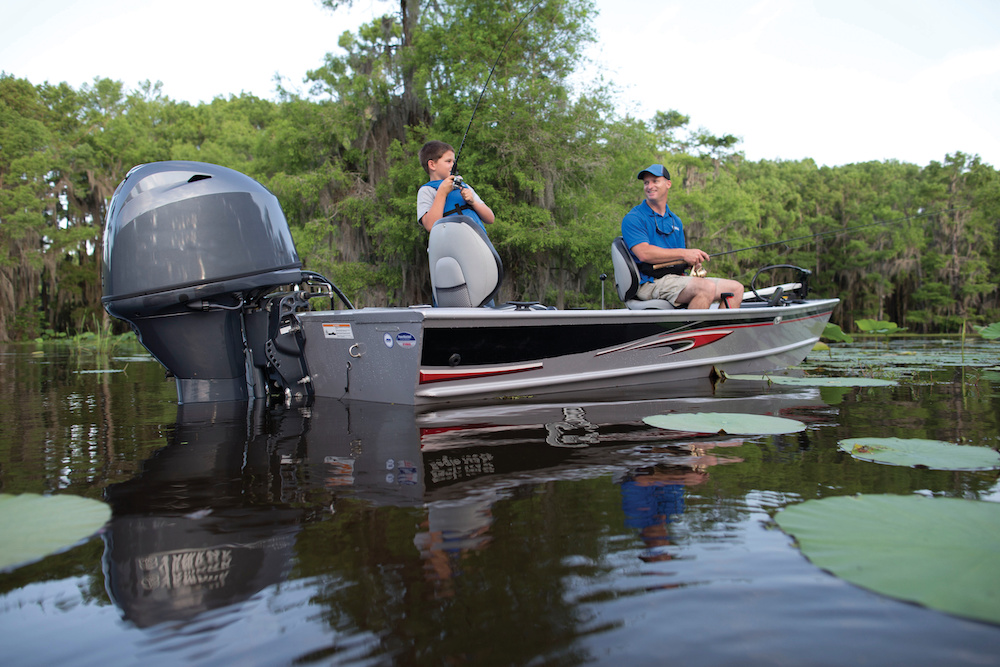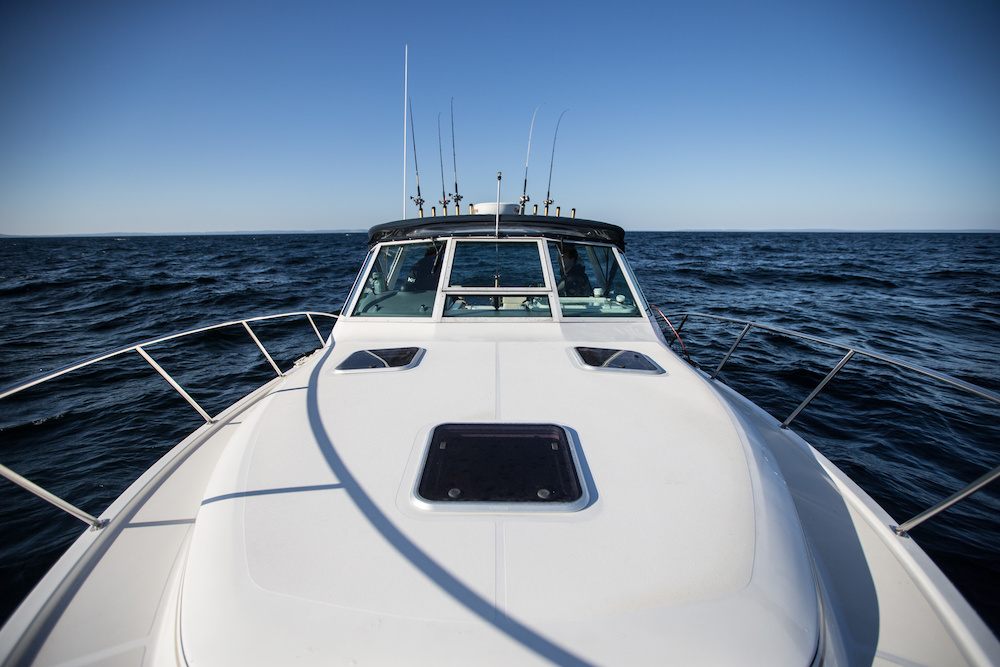You’ve seen plenty of aluminum fishing boats, compared them to countless fiberglass center consoles, and poked and prodded through a number of bass boats made out of each material—but how are you supposed to know which is really best? Truth be told, aluminum and fiberglass boats each have their own advantages and disadvantages and which one is best for your own personal needs depends on your own personal priorities. So let’s list out the basic plusses and minuses of each.
Explore Aluminum Fishing Boats Explore Fiberglass Center Consoles
Aluminum Boat Advantages
- Common production aluminum boats tend to be less expensive, sometimes significantly less expensive, than their fiberglass counterparts.
- Aluminum boats usually weigh substantially less than fiberglass boats of the same size, which means they require smaller powerplants to attain similar performance and thus have lower operating cost.
- Their lower weight means that aluminum boats are easier to launch and load at the boat ramp, easier to push on or off sandbars, and easier to trailer around with a small tow vehicle.
- Aluminum boats often require less maintenance, since you don’t have to wax all that gel coat.
- Aluminum dents rather than cracking or breaking upon impact, so repair costs are usually lower if there’s an accident.
Fiberglass Boat Advantages
- Fiberglass boats tend to weigh more, so they generally have better seakeeping abilities and more stability than aluminum boats.
- Their higher weight means fiberglass boats don’t get easily buffeted by the wind, so they tend to drift slower and more predictably (a trait important to anglers, in particular).
- It’s easier to manufacture fiberglass into complex designs, so fiberglass boats can employ much more complex hull shapes with things like bow flare, steps, and variable-degree deadrise (where the aggressiveness of the V-shape changes in different portions of the hull).
- The ability to include complex shapes also means that fiberglass boats can have accessories like livewells, tackle stations, seating modules, and fishboxes, integrated right into the main structure of the boat.
- Many people feel the crisp, clean look of fiberglass can’t be beat.
You may have noticed that a few traits of each material show up for both boats in opposite ways.
An aluminum boat’s lighter weight delivers several advantages, but in some other ways a fiberglass boat’s additional heft gives it a leg up. This is often the case not only with boatbuilding materials, but also with designs, equipping, and countless other considerations.
Remember, for example, that bowriders are a great design for families that want to enjoy general watersports like tubing, but if someone is into serious watersports like wakesurfing, a dedicated ski boat/wake boat, would be a far, far better pick. As with all things related to boats, there will always be trade-offs involved to gain advantages.
Learn More about Different Boating Activities
Aluminum vs. Fiberglass for Specific Boating Needs
While both aluminum and fiberglass have a role to play in many different waterways for many different types of boating, the attributes of each may take on additional importance in some specific scenarios.
- Boaters who often ply the waters of boulder-strewn rivers, for example, commonly opt for aluminum boats since hull damage could be a perpetual issue with a fiberglass boat.
- On the flip side of the equation, boaters who regularly cruise across open, choppy bays often prefer for fiberglass boats so they get a smoother ride cruising to and from the fishing grounds.
All of that being said, it’s also true that a boater’s individual needs play just as big a role in determining whether aluminum or fiberglass will be ideal for them, personally. Let’s use a single working parent with three young kids, as an example. This mom or dad probably has very little spare time, and would likely rather spend every minute of that free time out on the water as opposed to scrubbing and buffing. In this case, choosing an aluminum boat due to the lower maintenance needs makes a lot of sense. But on the other hand, a retiree who enjoys crabbing—where being blown off-course by a gust of wind can be very problematic—would likely prefer the fiberglass rig.
Should You Buy an Aluminum or Fiberglass Boat?
So, when all of these considerations are taken into account, how do aluminum boats and fiberglass boats stack up against one another? As usual, it all comes down to personal needs. But now that you know the ins and outs associated with each, you should be able to make the best call and find the aluminum or fiberglass boat that will be the perfect addition to your family. Who knows, you might even decide to get one of each!
Read Next: Comparing Jet Boats vs. Sterndrive (Prop) Boats
You Might Also Like:


